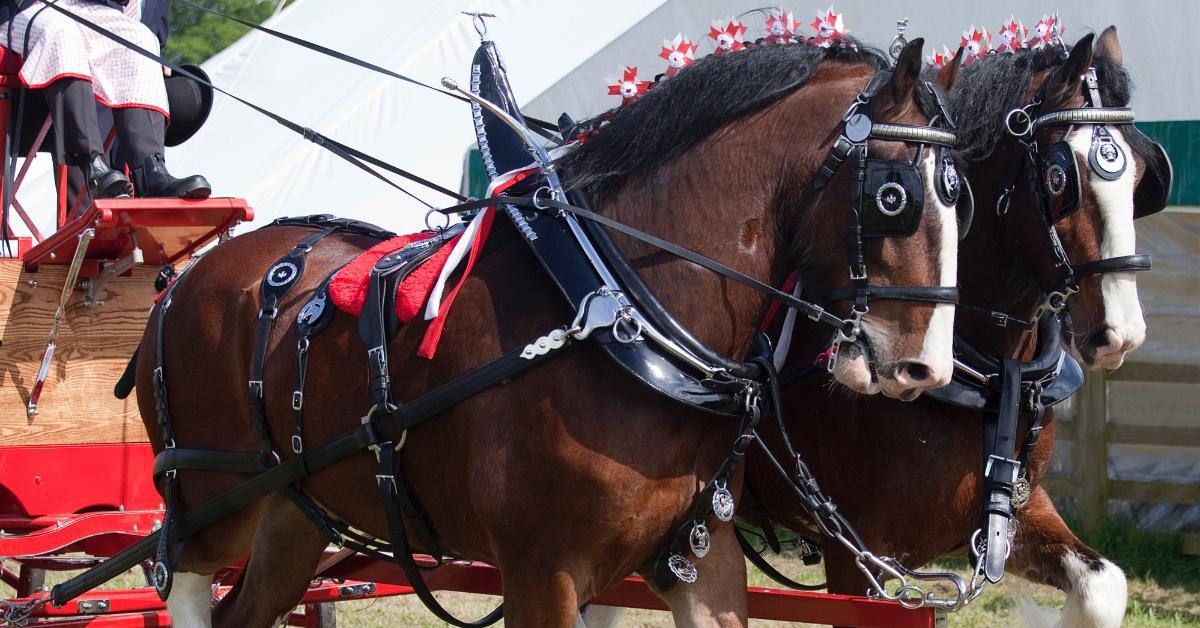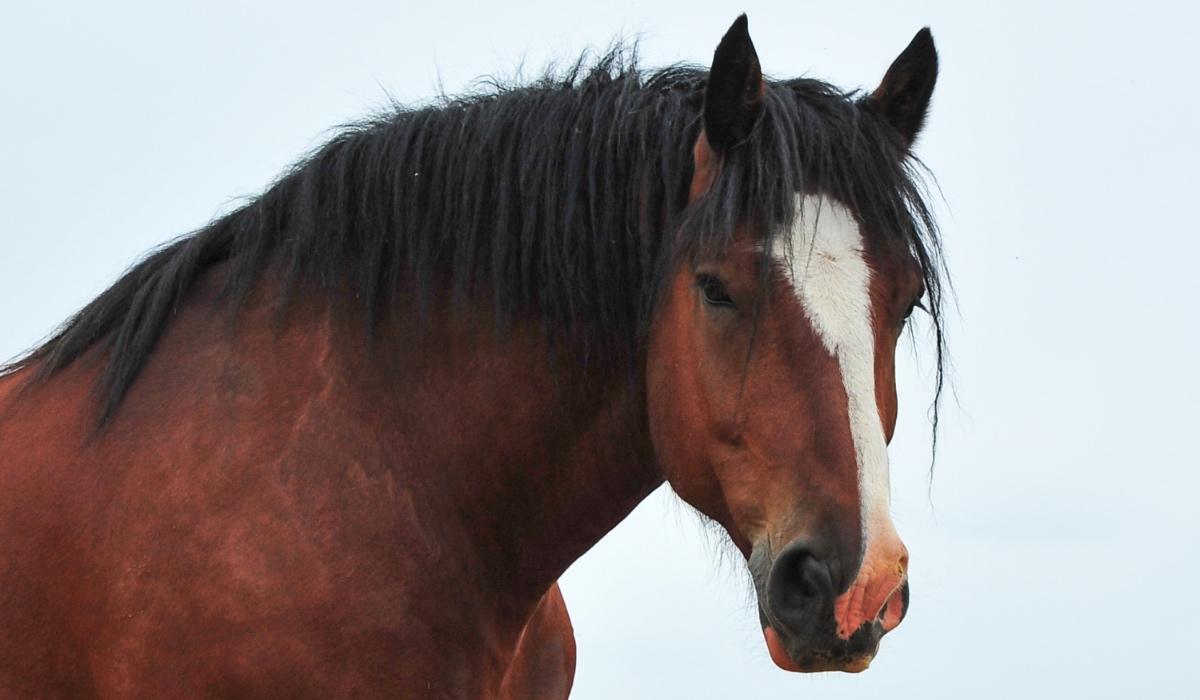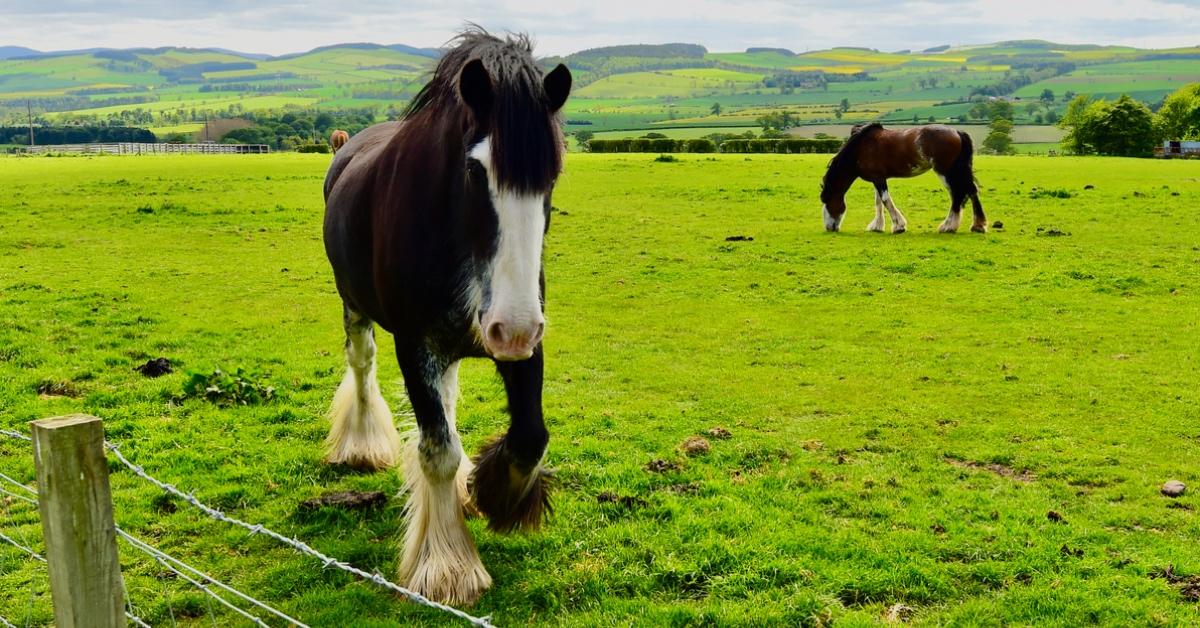Budweiser Finally Ends the Cruel Practice of Docking Its Clydesdales' Tails
Updated Sept. 21 2023, 4:56 p.m. ET

Horses are a source of joy for many people, so it's always even more despicable when they're treated badly. Between carriage horses dying from colic in New York City and the Kentucky Derby's history of abuse, horses in the public eye have received abysmal care. One terrifying equine procedure you might not be aware of is docking, where a horse's tail is unfortunately amputated.
Why are horse's tails docked? This cruel practice is not dissimilar to cropping dog ears, and the reasons are pretty selfish. Here's what you need to know about docking — and why Budweiser is receiving praise for stopping the practice in their iconic Clydesdales.

Why are horse's tails docked?
According to the American Veterinary Medical Association (AVMA), docking is "Amputation of the distal part of the boney part of the tail." A horse's tail typically contains 15 to 21 vertebrae, so the amputation leaves the tail roughly six inches long.
The reasons behind docking are cosmetic and do not help the horse's health, which has led the AVMA to condemn the practice.
The AVMA wrote, "Docking traditionally has been performed to prevent the tail of the horse from interfering with harness and carriage equipment." If the reins pass beneath a horse's tail and the horse clamps down, the driver will lose control of the carriage.
Docking is also "in fashion" for draft horse breeds, primarily for competitions or shows. According to the Cambridge University Press, docking became popular in the 17th century, intending to distinguish English horses from the French.

In an opinion article for Equus magazine, Kate Hepworth-Warren, assistant professor of veterinary medicine at North Carolina State University, voiced her concern over an increasing number of veterinary cases involving complications from tail alterations.
"Even without complications, tail alteration is cruel because it changes the way a horse can use his tail and sometimes prevents him from using it at all. Tail function is important to equine well-being," Hepworth-Warren wrote.
She further explained, "In addition to using his tail to swat flies, a horse may clamp it down to protect sensitive, hairless areas from cold winds, and he raises his tail to defecate. A horse’s tail also plays a vital role in equine body language—the ability to raise and swing his tail helps him to fit into a stable, functioning herd."
It should be noted that docking is banned in or regulated in 11 U.S. states and several European countries.

Does Budweiser cut off horses tails?
Despite Budweiser's parent company, AB InBev, being located in Belgium, which has banned the practice of docking, the signature Budweiser Clydesdales did have their tails docked until 2023.
On Sept. 20, 2023, a spokesperson for Budweiser announced that it was ending the practice of docking, per NPR. This decision follows pressure from animal rights group PETA, which had previously created an unofficial Super Bowl commercial targeting the company for docking.
Also, on Sept. 20, American Humane released a statement declaring Anheuser-Busch "American Humane Certified," meaning it has met "American Humane's comprehensive, science-based standards for animal welfare and humane treatment of animals." Areas evaluated for certification include animal housing, behavior, veterinary care, sanitation, and more.
We look forward to seeing the majestic Budweiser Clydesdales with their gorgeous, flowing tails!